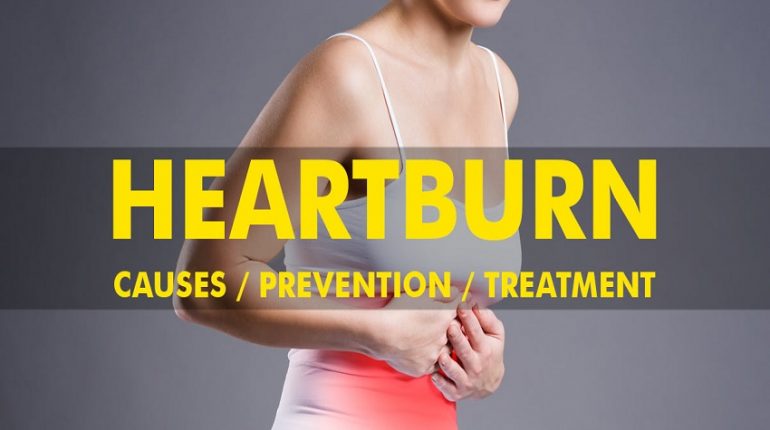Have you been suffering from frequent heartburn?
According to a recent study, over 60 million Americans suffer from heartburn at least once per month. Additionally, some studies have found that over 15 million Americans experience symptoms of heartburn every day.
If you’re suffering from frequent heartburn, you’re probably wondering what’s causing it as well as what you can do to stop it.
Check out this guide to learn everything you need to know about recurring heartburn.
What is Heartburn?
First things first, what exactly is heartburn?
Heartburn is a discomfort or burning pain in the mid-chest or upper chest. Sometimes, it extends to the neck and throat. While some people describe the pain of heartburn as a burning sensation, others say it feels sharp or like their chest is tightening.
Many people experience more severe heartburn when they lie down or bend over. Typically, heartburn occurs after eating.
What Causes Frequent Heartburn?
It’s normal for everyone to experience heartburn from time to time. Occasional heartburn is rarely a cause for concern.
However, if you’re experiencing heartburn on a more frequent basis, there could be an underlying condition that needs to be treated.
Typically, heartburn is caused by acid reflux. This is a condition in which the contents of your stomach are forced back up into your esophagus. When this occurs, you experience a burning sensation in your chest.
GERD
If you’re experiencing acid reflux more than twice a week, this is referred to as gastroesophageal reflux, or GERD.
People of all ages can suffer from GERD, and the cause of GERD is often attributed to lifestyle factors. Lifestyle factors typically associated with GERD include lack of exercise, obesity, and smoking.
How can you tell if you have GERD? Here are some of the common symptoms to look out for:
Frequent Heartburn
As we mentioned, experiencing heartburn more than two times per week typically means you’re suffering from GERD.
To figure out the frequency of your symptoms, we suggest making a note of every time you experience heartburn in your calendar. Write down when you experienced the heartburn as well as what you ate before you experienced it.
Chances are, you’ll begin to see a pattern emerge in terms of what you ate and when you ate it. You should also make note of whether or not you were lying down or bending over when you started experiencing the heartburn.
Chest Pain
GERD is also characterized by chest pain. However, before you jump to this conclusion, it’s important to first rule out other heart conditions.
Chest pain may also indicate angina, cardiovascular disease, pneumonia, anxiety, asthma, or other serious issues. Schedule an appointment with your doctor to rule these out before you move onto GERD treatment.
Difficulty Swallowing
Difficulty swallowing is called dysphagia. Dysphagia may be another symptom of GERD.
When stomach acid moves back into your esophagus, it can cause ulcers that turn into scars. Over time, these scars narrow your esophagus, making it more difficult for you to swallow.
Bad Breath
If you’re experiencing bad breath, don’t automatically assume it’s from the garlic and onions you’re eating.
Bad breath may indicate GERD. This is because stomach acid in your esophagus serves as a breeding ground for bacteria. This bacteria can then lead to unpleasant smelling breath.
Top Remedies to Relieve Heartburn and GERD
So what can you do to relieve heartburn/GERD? Here are some of the top remedies to try:
Try Over-the-Counter Antacids
If you only experience mild heartburn on the rare occasion, then you may want to try over-the-counter antacids to relieve your symptoms.
Antacids help to neutralize stomach acid and relieve mild heartburn. However, antacids don’t do anything to treat the root causes of heartburn. They just alleviate the symptoms.
Therefore, if you experience severe, frequent heartburn, antacids are not the answer. Instead, you need to make other changes in your life to rid yourself of heartburn.
Maintain a Healthy Weight
As we mentioned earlier, obesity frequently leads to heartburn. This is because extra weight increases the pressure on your abdominals and strains the lower esophageal sphincter.
This, in turn, can lead to heartburn. If you’re obese or overweight, we suggest speaking with your doctor or nutritionist about putting together a weight loss plan. Dropping a few pounds may be all it takes to make your heartburn subside.
Quit Smoking
We also mentioned earlier that smoking cigarettes can contribute to heartburn. Obviously, quitting smoking is easier said than done, but if you want to relieve your heartburn symptoms, it’s one of the best things you can do.
These tips from the Mayo Clinic may help you quit smoking.
Exercise
Exercise can also help with heartburn relief. And, if you’re suffering from heartburn due to obesity, it can also help you drop some weight and treat the underlying cause.
You should aim for around 150 minutes of moderate exercise per week. If you’re trying to lose weight, you may want to exercise more or pick up the intensity.
Avoid Trigger Foods
Certain foods can trigger heartburn symptoms more than others. Everyone’s trigger foods are different. However, some common trigger foods include:
- Fried foods
- Spicy foods
- Tomato sauce
- Garlic
- Chocolate
- Mint
- Onion
- Caffeine
- Alcohol
Writing down what you’ve eaten when you experience heartburn can help you identify your trigger foods.
Eat Smaller Meals and Chew Slowly
Eating smaller meals and chewing slowly can also help you avoid heartburn.
Additionally, many people find that eating smaller meals helps them lose weight. If you’re struggling with portion control, you can purchase portion-control plates that help you figure out how much you need to eat.
You can also try eating half of what you normally eat, and then if you’re still hungry, adding more to your plate.
Are You Ready to Say Goodbye to Frequent Heartburn?
Now that you’ve read this article, it’s time to put these tips into action so you can say goodbye to your frequent heartburn. Before you know it, your heartburn symptoms will be a thing of the past!
Be sure to check back in with our blog for more health-related tips and tricks!




